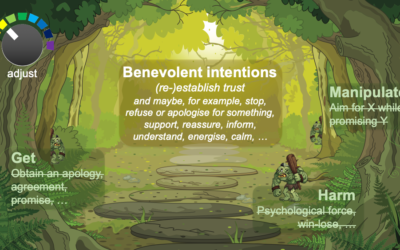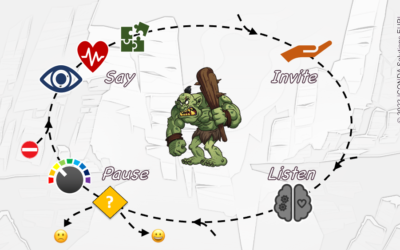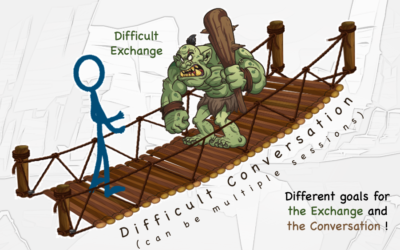When setting up a Technical Sales Support training course, I ask the sales people and engineers that I’m working with about their biggest challenges.
What would you think? The incredible complexity of multi-billion transistor chip? Software code written in 8 different countries, giving error messages in Chinese and Urdu?
No. It’s simply the pressure of work.
This HUGE big thing, pressing down on everybody, that we’d all like to get rid of. To find the solution for.
And so I started researching task/time/pressure/stress management and created a training module. That was about six years ago, and I’ve discovered that such research is quite a task, a huge consumer of time and a source of pressure and stress! 😉 But it’s interesting, and new things keep popping up.
Here’s one of them: The root cause of many people’s difficulty with managing pressure is their search for a single, elegant solution to the problem.
This is a fundamental mistake, and it is perhaps caused by a misleading image of work pressure as some kind of huge rock that we’re carrying around with us. If only we could find a way to get rid of it …
Though this image is a tempting one, I suggest that it is more helpful to visualise a backpack full of stones of all different shapes and sizes. The backpack is too heavy to lift off in one go, and so I have to take out each stone, one by one. Of course, the stones represents different sources of pressure and stress and, since each is in some way unique, I have to equip myself with a variety of tools and methods for dealing with them.
The point is that there is no single solution to the working under pressure problem. There is no perfect system of working or behaving, and there never will be. Each new challenge has to be considered individually, and we constantly have to look for new ideas, tools and methods for coping.
Obvious? Not really. We are culturally inclined to look for simple, all-embracing solutions. In The Crooked Timber of Humanity (1990), Isaiah Berlin pointed out that the whole of western contains the hidden assumption that “to all genuine questions there can be one and only one correct answer”. He goes on to unravel this assumption, arriving at the conclusion that, “… no perfect solution is, not merely in practice, but in principle, possible in human affairs, and any determined attempt to produce it is likely to lead to suffering, disillusionment and failure.”
It’s been shown that the negative effects of stress are directly related to our attitude to it – and therefore our mental image of it. People who accept stress as a necessary, temporary discomfort fare much better than those who think that stress will kill them (as it turns out, both groups are right!).
So, at the very least, stop feeling guilty about the difficulty and pain you experience working under pressure. It’s not going to go away. Just keep throwing out those stones, one by one.






